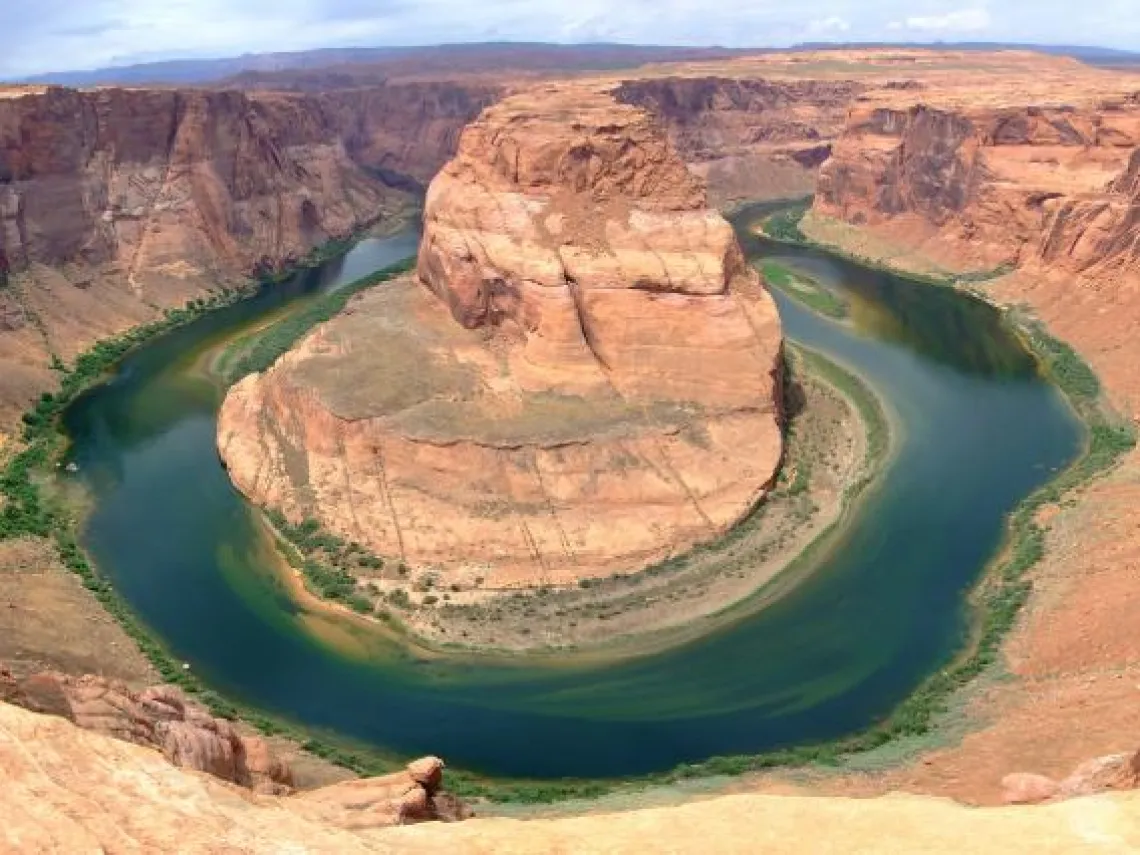Creating a science agenda for the Colorado River

In October 2017, CCASS hosted 35 well-known researchers from a wide array of disciplines to work toward a science agenda for the Colorado River basin. The scientists’ expertise ranged from climate science, to ecology, to public policy, to aquatic biology – and they came to UA to discuss gaps in knowledge and ways to ensure that existing science is used more effectively. Managing risk across the entire Colorado River Basin, from the headwaters in Wyoming and Colorado to the delta in Mexico, means acknowledging that despite more than a century of water management in the Basin, the communities of the Southwest are still very much affected by forces of nature, including floods and drought.
The highly visible and closely monitored depletion of reservoir storage on the Colorado River is just one of multiple management issues that the managers of the River face. Other issues that have been discussed and addressed to varying degrees are the implications of climate variability in combination with long-term changes in temperature and precipitation; current and potential changes in water temperature, chemistry and sediment load; the need to consider the possibility of extreme flooding events in addition to long-term water scarcity; and thinking about climate change vulnerabilities across coupled human-environment systems. To arrive at lasting solutions requires addressing the role and implications of economics and water markets, the need to manage and monitor groundwater flows more comprehensively, and many governance issues. The workshop focused on the need to more fully consider the impacts of alternative management approaches (including impacts on recreation, habitat and species) and touched on the science needs of Native American tribes and water managers in Mexico and the Colorado Delta who are not normally engaged in these conversations.
In addition to all of the needs for information, a parallel issue is the actual potential that this information can and will be used and useful in real-world decision contexts. Usefuleness and usability are related to many factors, including timeliness and access to data, and the credibility, salience and legitimacy of the information. We are all aware of the challenges of connecting science and decision-making, but actually bridging that gap even on a small scale is a grand challenge. This National Science Foundation- and Janet Quinney Lawson-funded workshop started a process to help build a science agenda and support enhanced use of existing knowledge.

